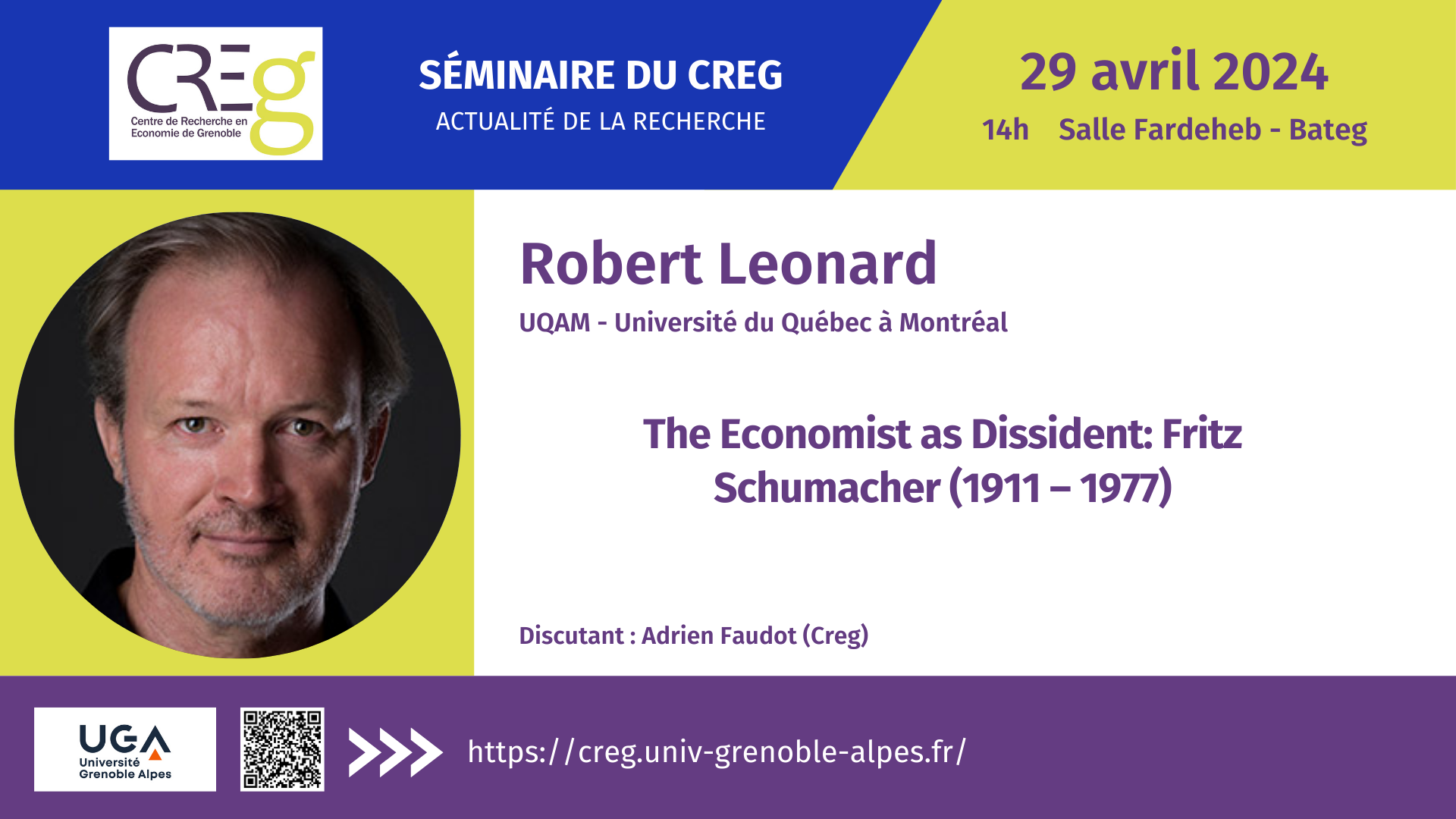- Imprimer
- Partager
- Partager sur Facebook
- Partager sur X
- Partager sur LinkedIn
Séminaire
Le 29 avril 2024

Le Creg vous invite à assister à son séminaire Actualité de la recherche.
L'invité de ce séminaire est Robert Leonard (Université du Québec à Montréal).
- The Economist as Dissident: Fritz Schumacher (1911-1977)
Abstract: This talk provides an overview of an intellectual biography currently in-progress. E. F. ‘Fritz’ Schumacher is best known as the author of Small is Beautiful: A Study of Economics as if People Mattered, his bestselling book of 1973. In his earlier life, he went from being a son of privilege (German mandarin class, Rhodes Scholar, economist in finance and trade) to becoming a psychological outsider (enemy alien, detainee, socialist, permanent exile). Thereafter, even as an economist with the National Coal Board, he led a singular life, marked by constant, creative tension. Developing an interest in the “East”, he became involved in Buddhism and Gurdjieff, a spiritual quest that undermined his belief in homo oeconomicus and turned him against his former hero, Keynes. Influenced by Gandhi, and in opposition to colleagues such as Kaldor, he took a minority position in matters of economic development, shunning capital-intensive projects and questioning reliance on non-renewable sources of energy. Yet, as a coal economist, he assisted in the further mechanisation of this already-heavy industry and sought to protect coal production against imported oil. In his sceptical view of science and technology, not least nuclear physics, he diverged from his own brother-in-law, Werner Heisenberg. Retiring from coal, he wrote Small is Beautiful, which gave vent to his disillusionment with modern development, but downplayed the book’s religious inspiration. The latter he revealed in A Guide for the Perplexed (1977), which he regarded as his most important work but which was ignored by the secular “Green” movement that he himself had helped to inspire. His legacy today runs the gamut: from an ecological economics increasingly focused on ‘technique’ to his more philosophically-minded successors, concerned with matters of the ‘spirit’.
Date
14h-16h
Localisation
Séminaire hybride
- en présentiel : salle Fardeheb, 3e étage, Bateg, bâtiment Économie gestion sur le plan
- visioconférence Zoom
Télécharger
Affiche (DOCX, 1.9 Mo)
Discutant
Infos pratiques
Contact : creg univ-grenoble-alpes.fr (creg[at]univ-grenoble-alpes[dot]fr)
univ-grenoble-alpes.fr (creg[at]univ-grenoble-alpes[dot]fr)
- Imprimer
- Partager
- Partager sur Facebook
- Partager sur X
- Partager sur LinkedIn